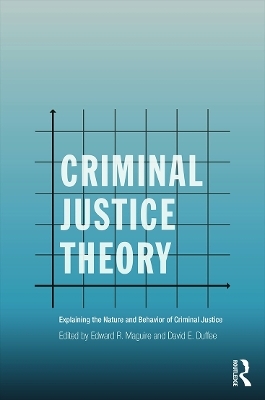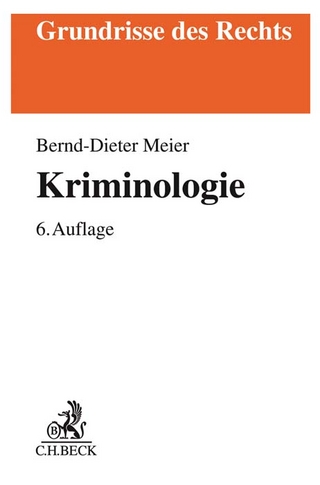
Criminal Justice Theory
Routledge (Verlag)
978-0-415-71519-5 (ISBN)
Edward R. Maguire is Professor of Justice, Law & Criminology in the School of Public Affairs at American University in Washington, DC. Professor Maguire received his Ph.D. in Criminal Justice from the University at Albany in 1997. He has held previous positions at George Mason University, the University of Nebraska, the U.S. Department of Justice, and the United Nations. From 2004-2010, he led a series of studies that examined gangs, guns and violence in Trinidad and Tobago. From 2006-2010, he led a field study of sex trafficking in minors in the Philippines. He is currently leading impact evaluations and other studies related to policing, gangs, firearms, violence, and youth risk in El Salvador, Uruguay, the U.S., and several Caribbean nations. He has written or edited three books and more than sixty journal articles and book chapters on a variety of topics in criminology and criminal justice. David E. Duffee is Professor Emeritus of Criminal Justice, University at Albany, and former dean of the School of Criminal Justice, from which he received his Ph.D. in 1973. His research interests are in planned change in criminal justice agencies and communities and in criminal justice theory. His first work in criminal justice theory, Explaining Criminal Justice, received the book of the year award from the Academy of Criminal Justice Sciences. His two most recent projects were (1) as a member of the research team of Service Outcomes Action Research (SOAR), a continuing partnership between two child welfare agencies and the University at Albany, and (2) as study director for the Assessment Protocol in the Arizona State University sites of Criminal Justice Drug Abuse Treatment Studies II.
Part I THE IDEA OF CRIMINAL JUSTICE THEORY. 1. Why Is Criminal Justice Theory Important? 2. Foundations of Criminal Justice Theory 3. Why Is There So Little Criminal Justice Theory? Neglected Macro- and Micro-Level Links Between Organization and Power. Part II THEORIES OF POLICING 4. Explaining Police Organizations 5. Understanding Variety in Urban Community Policing: An Institutional Theory Approach 6. The "Causes" of Police Brutality: Theory and Evidence on Police Use of Force. Part III THEORIES OF THE COURTS 7. Assessing Blameworthiness and Assigning Punishment: Theoretical Perspectives on Judicial Decision Making 8. Courts and Communities: Toward a Theoretical Synthesis 9. A Qualitative Study of Prosecutors’ Decision Making in Sexual Assault Cases. Part IV THEORIES OF CORRECTIONS 10. A Test of a Turnover Intent Model: The Issue of Correctional Staff Satisfaction and Commitment 11. The Construction of Meaning During Training for Probation and Parole 12. Examining Correctional Resources: A Cross-Sectional Study of the States Part V CONCLUSION 13. Directions for Theory and Theorizing in Criminal Justice
| Erscheint lt. Verlag | 3.3.2015 |
|---|---|
| Reihe/Serie | Criminology and Justice Studies |
| Zusatzinfo | 18 Tables, black and white; 15 Line drawings, black and white |
| Verlagsort | London |
| Sprache | englisch |
| Maße | 152 x 229 mm |
| Gewicht | 340 g |
| Themenwelt | Recht / Steuern ► EU / Internationales Recht |
| Recht / Steuern ► Strafrecht ► Kriminologie | |
| Sozialwissenschaften ► Soziologie | |
| ISBN-10 | 0-415-71519-9 / 0415715199 |
| ISBN-13 | 978-0-415-71519-5 / 9780415715195 |
| Zustand | Neuware |
| Haben Sie eine Frage zum Produkt? |
aus dem Bereich


